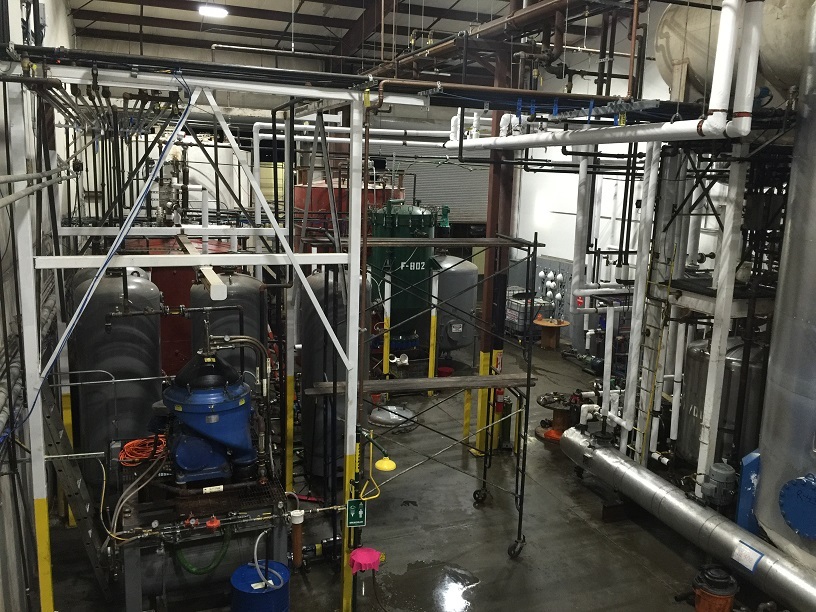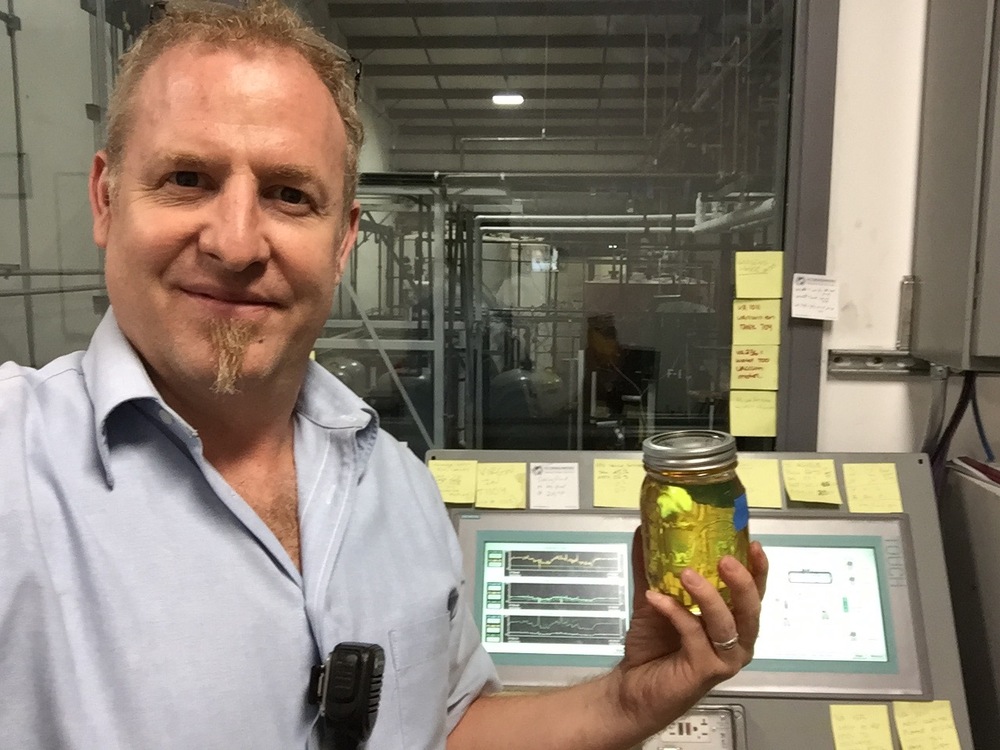Bridgeport Biodiesel files for bankruptcy, seeks buyer





Photo: Bridgeport Biodiesel
April 12, 2018
BY Ron Kotrba
Bridgeport Biodiesel in Connecticut has filed for Chapter 11 bankruptcy in the U.S. Bankruptcy Court for the Southern District of New York. The biodiesel refinery, technically called Bridgeport Biodiesel 2 LLC, was engineered as a 13 MMgy continuous flow plant and built next door to the original, smaller batch facility in Bridgeport.
CEO Brent Baker told Biodiesel Magazine the financial woes are related to the process technology installed at the facility, including the inability to successfully operate the solid catalyst esterification system. “We struggled through most of last year,” he said. “We were plagued by mechanical and flow issues.”
The solid catalyst esterification technology was developed and patented by Tennessee-based Lutros LLC (formerly SunsOil LLC). The company began developing the heterogeneous esterification catalyst system in 2009. Lutros has also developed a solid transesterification catalyst, but Mark Mauss, president, CEO and founder of Lutros, said he has yet to find a company that can produce truckload quantities of the transesterification beads. Both esterification and transesterification technologies by Lutros utilize packed-bed reactors.
Advertisement
Advertisement
Mauss told Biodiesel Magazine that Bridgeport Biodiesel’s struggles were more equipment-related than technology-based. “I agreed to take on the combining of assets from two other biodiesel plants that Bridgeport Biodiesel bought,” he said. “It was our job to bring it all together in a continuous flow, fully automated system, which included our solid catalyst esterification system. There were 15 different types of pumps, nothing was consistent, and everything was used. What I’ve learned from this is to never take on another project piecemealing a plant together like that again.”
Shortly before Bridgeport Biodiesel shut down, the plant had a boiler failure, according to Mauss. This was around the same time the screen retaining the catalyst failed, he added, so catalyst was coming out of the reactors. “I think that was the last straw,” Mauss said, “as they had already burned through enough cash.”
Baker said the bankruptcy is bringing down his whole complex of businesses, including the oil collection arm Tri-State Biodiesel, which Baker said he sold some time ago, and his retail fuel distribution business. “I was really proud of my retail fuel business,” he said. “But that’s shut down now.”
Advertisement
Advertisement
Bridgeport Biodiesel could still be profitable, Baker said, adding that he has a plan to get the refinery running again. The strategy includes the possibility of installing a traditional acid esterification unit on the frontend, in order to process FFA into biodiesel through a more conventional route.
“We’ve put so much blood, sweat and tears—along with $4.5 million and a lot of time—into this,” Baker said. “I don’t want to see it torn up and turned into scrap metal.”
Baker said he hopes someone invests in, acquires or merges with Bridgeport Biodiesel and reopens the plant. “We’re in a very good location,” he said. “Someone could get a really good deal on this plant.”
Tri-State Biodiesel and Lard-NABF LLC acquired the facility in 2013 and began operating in September 2014, as the owners prepared to expand and upgrade production.
Related Stories
The European Commission on July 18 announced its investigation into biodiesel imports from China is now complete and did not confirm the existence of fraud. The commission will take action, however, to address some systemic weaknesses it identified.
Kintetsu World Express Inc. has signed an additional agreement with Hong Kong, China-based Cathay Pacific Airways for the use of sustainable aviation fuel (SAF). The agreement expands a three-year partnership between the two companies.
Broco Energy on July 17 announced a new partnership with the Massachusetts Port Authority (Massport) to deliver and transition Massport's fuel tanks to renewable diesel across its various facilities.
Shell Aviation, Accenture, and Amex GBT on July 10 announced Avelia is in the process of evolving to an industry solution with independent data hosting and a multi-supplier model helping users access the GHG benefits of SAF.
The U.S EPA on July 17 released data showing more than 1.9 billion RINs were generated under the RFS during June, down 11% when compared to the same month of last year. Total RIN generation for the first half of 2025 reached 11.17 billion.
Upcoming Events










